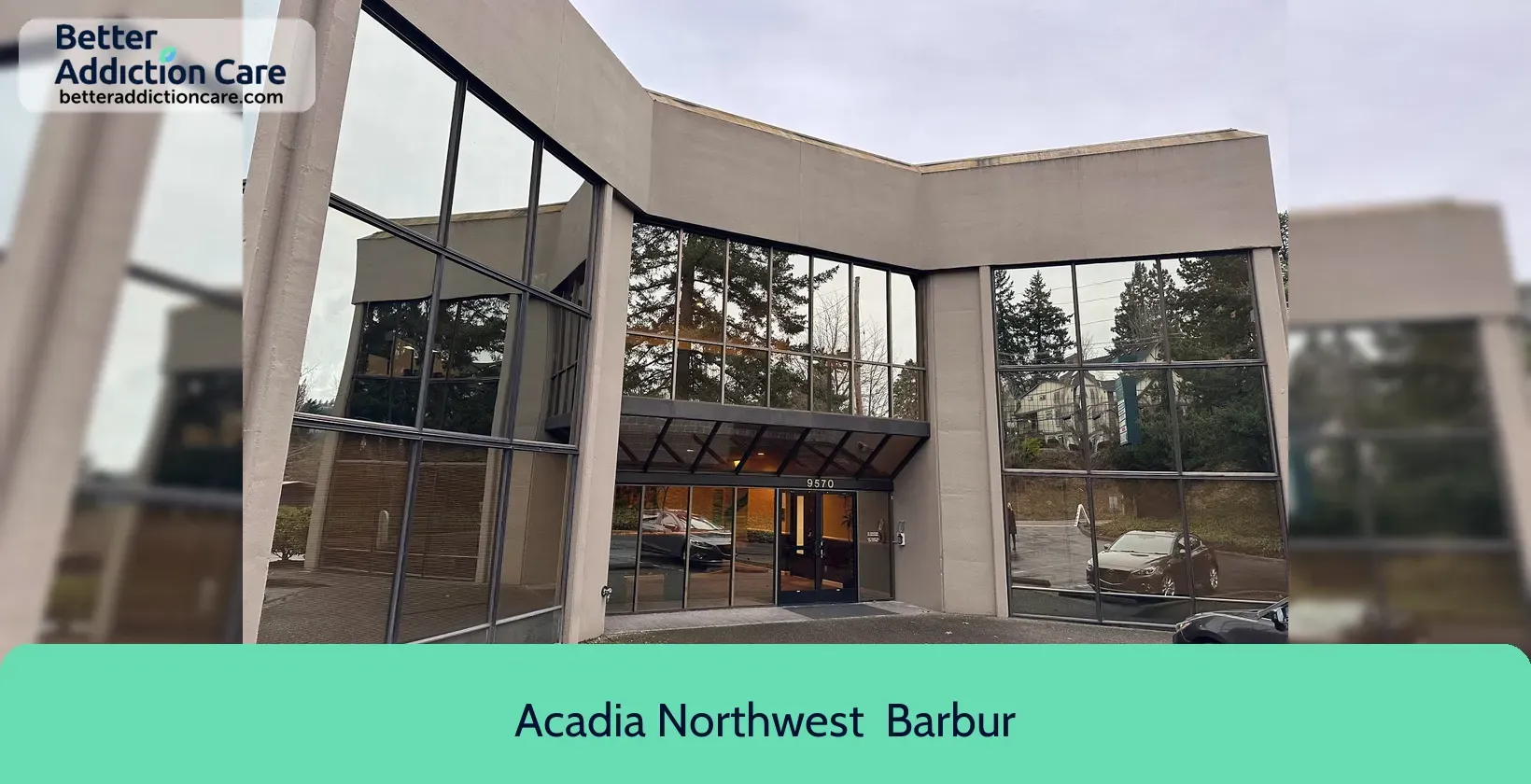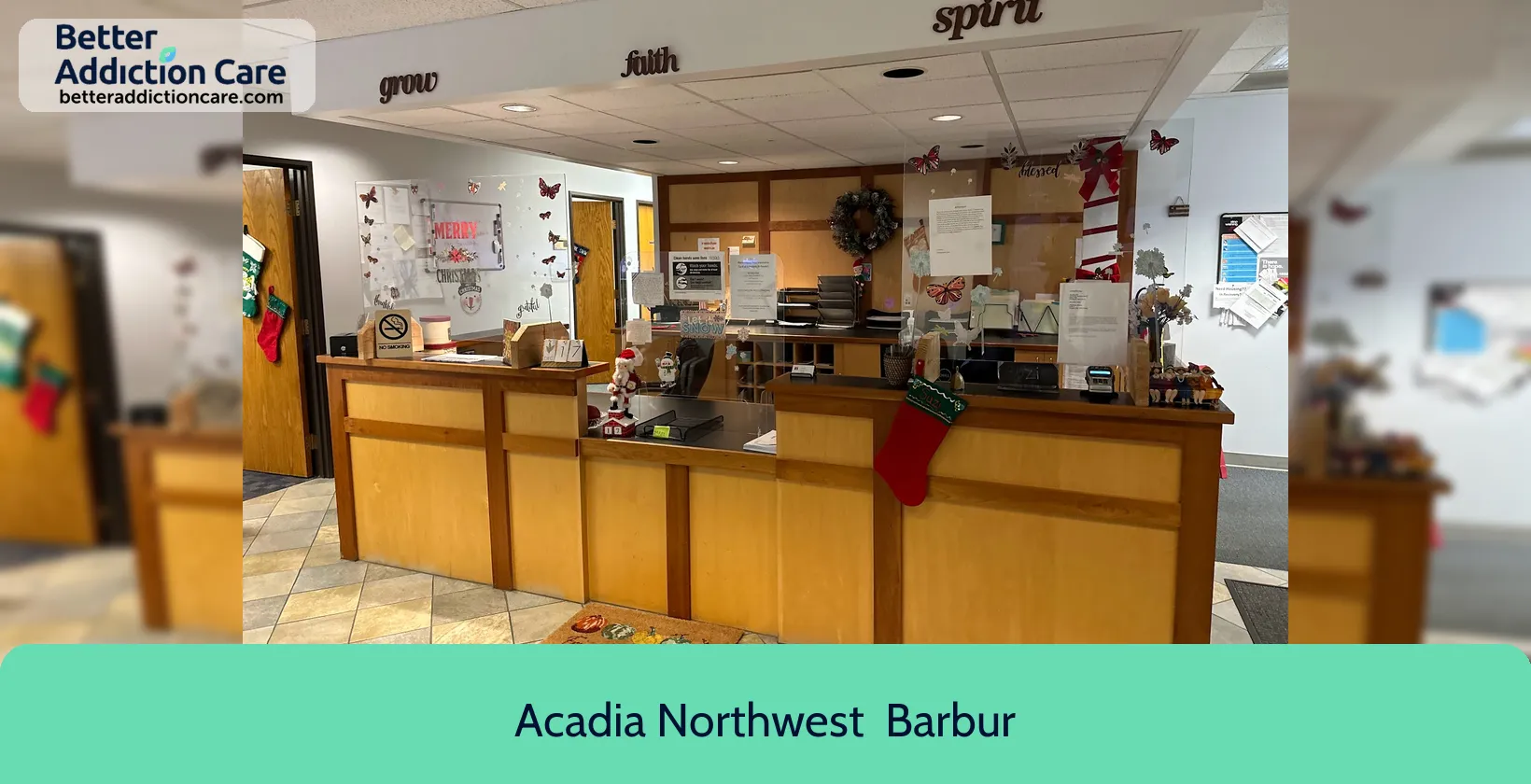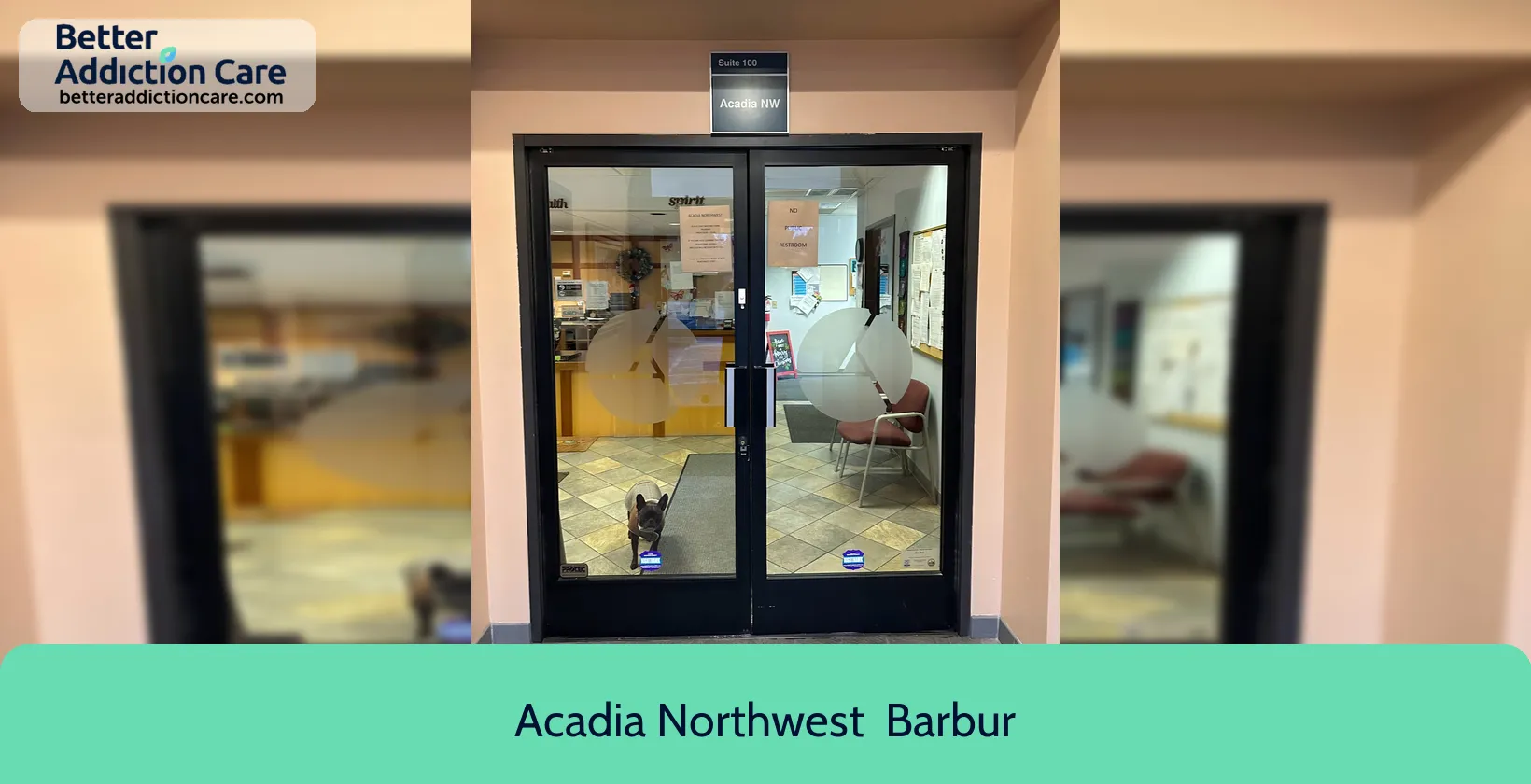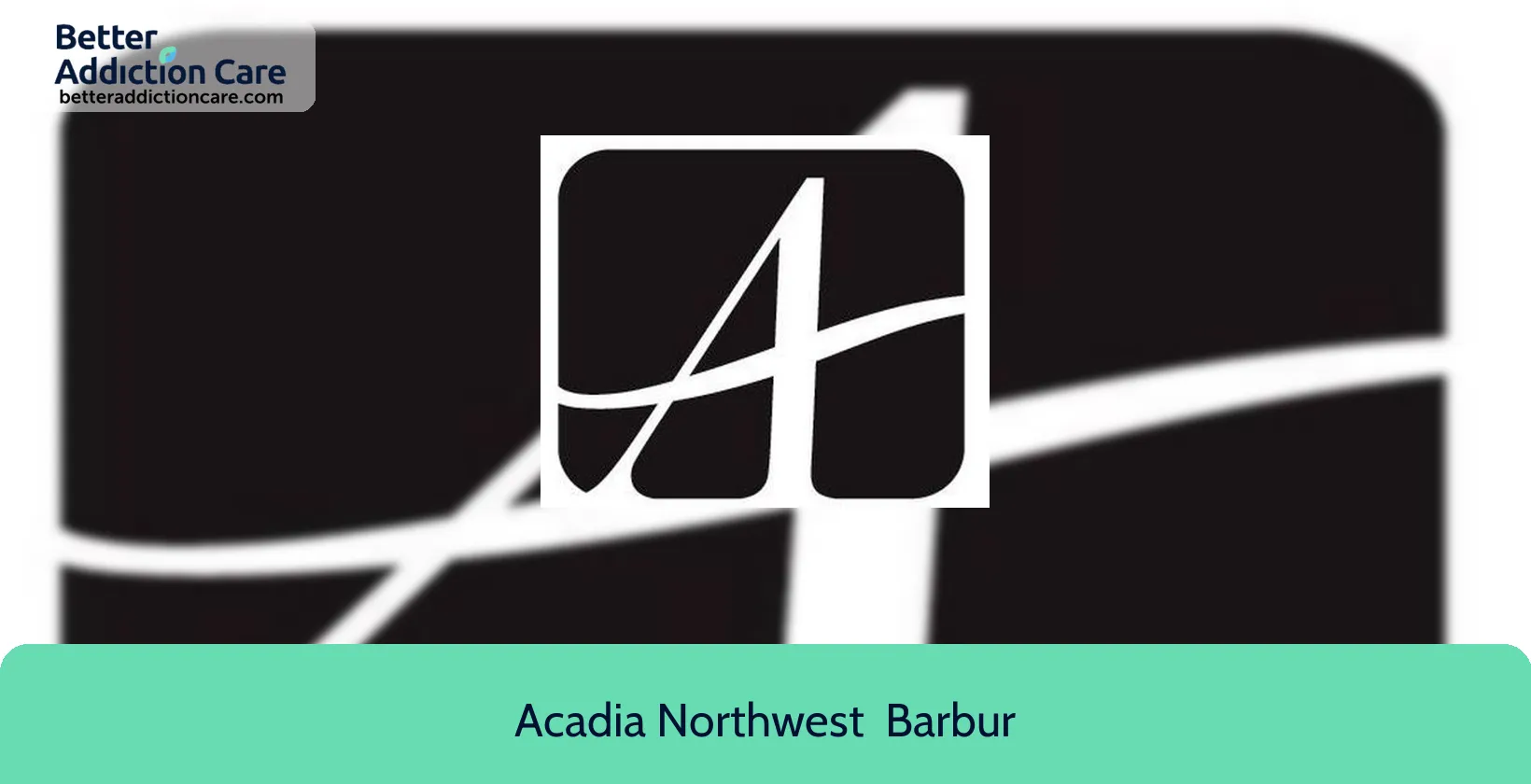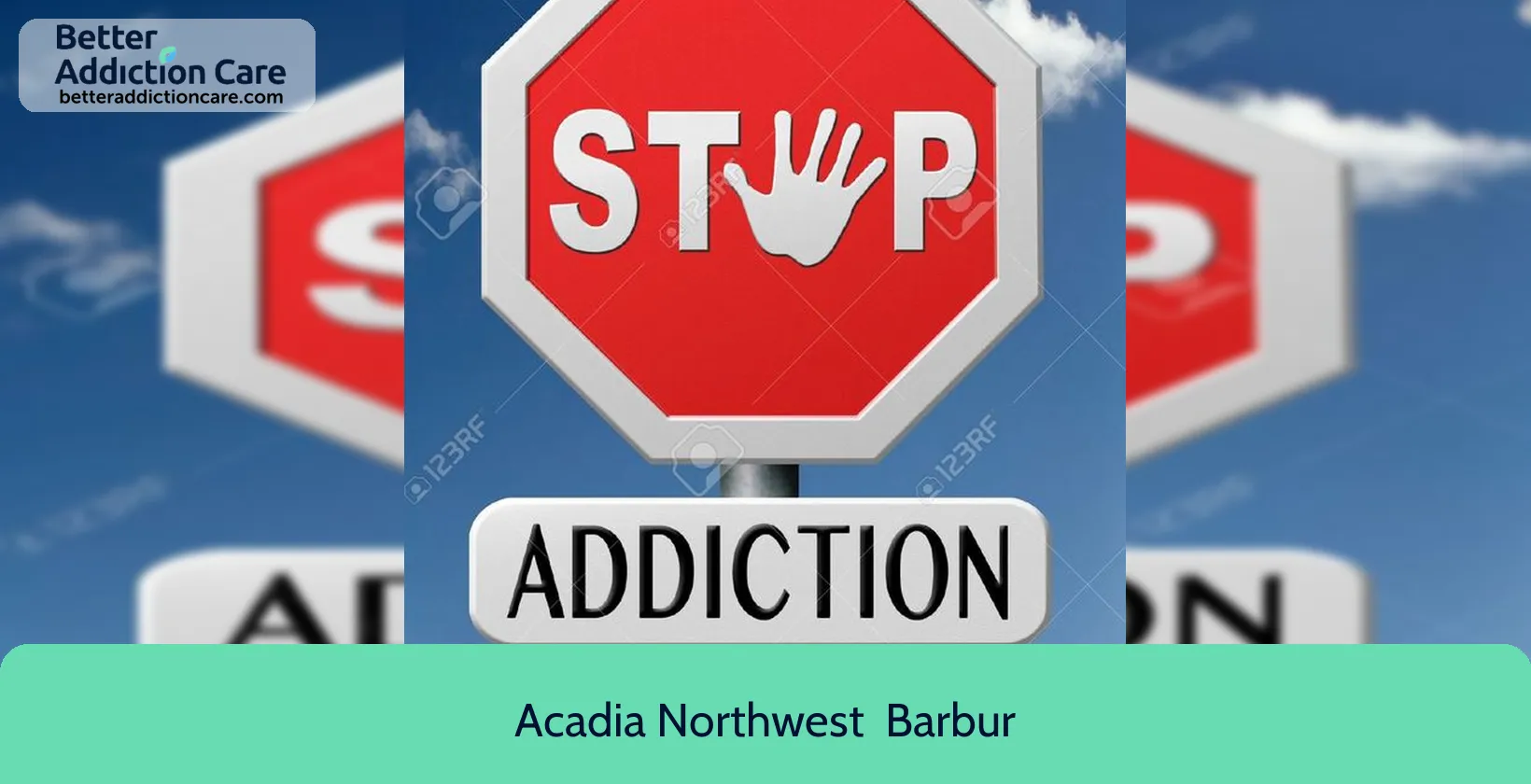Acadia Northwest - Barbur
Overview
Acadia Northwest - Barbur is a substance abuse treatment center for people seeking treatment near Multnomah County. As part of their treatment modalities for recovery, Acadia Northwest - Barbur provides cognitive behavioral therapy, telemedicine/telehealth therapy, and substance use disorder counseling during treatment. Acadia Northwest - Barbur is located in Portland, Oregon, accepting cash or self-payment for treatment.
Acadia Northwest - Barbur at a Glance
Payment Options
- Cash or self-payment
- Medicaid
- State-financed health insurance plan other than Medicaid
- Private health insurance
Assessments
- Screening for tobacco use
- Comprehensive substance use assessment
- Interim services for clients
- Outreach to persons in the community
- Screening for mental disorders
Age Groups
- Young adults
- Children/adolescents
- Seniors
Ancillary Services
- Case management service
- Specially designed program for DUI/DWI clients
- Social skills development
Highlights About Acadia Northwest - Barbur
6.80/10
With an overall rating of 6.80/10, this facility has following balanced range of services. Alcohol Rehabilitation: 8.00/10, Drug Rehab and Detox: 6.00/10, Insurance and Payments: 6.00/10, Treatment Options: 7.21/10.-
Alcohol Rehabilitation 8.00
-
Treatment Options 7.21
-
Drug Rehab and Detox 6.00
-
Insurance and Payments 6.00
Accreditations
State mental health department:
State mental health department accreditation refers to the process of evaluating and certifying the quality and standards of a state's mental health department, ensuring that it provides high-quality services and meets specific criteria for mental health care. The accreditation process is performed by a third-party organization and helps to improve the overall care and treatment of individuals with mental health conditions.
State department of health:

Government agencies issue State Licenses, granting permission to rehabilitation organizations to conduct their business operations lawfully within specific geographic regions. Generally, the particular rehabilitation programs offered by a facility and its physical location dictate the necessary licenses needed for legal operation.
Treatment At Acadia Northwest - Barbur
Treatment Conditions
- Alcoholism
- Substance use treatment
Care Levels
- Outpatient
- Intensive outpatient treatment
- Regular outpatient treatment
- Aftercare
Treatment Modalities
- Cognitive behavioral therapy
- Telemedicine/telehealth therapy
- Substance use disorder counseling
- Treatment for gambling disorder
- Group counseling
Ancillary Services
Additional Services
- Pharmacotherapies administered during treatment
- Mentoring/peer support
- Drug or alcohol urine screening
Special Programs
- Criminal justice (other than DUI/DWI)/Forensic clients
Common Questions About Acadia Northwest - Barbur
Contact Information
Read our Most Recent Article About Drug Addiction
DISCLAIMER: The facility name, logo and brand are the property and registered trademarks of Acadia Northwest - Barbur, and are being used for identification and informational purposes only. Use of these names, logos and brands shall not imply endorsement. BetterAddictionCare.com is not affiliated with or sponsored by Acadia Northwest - Barbur.
